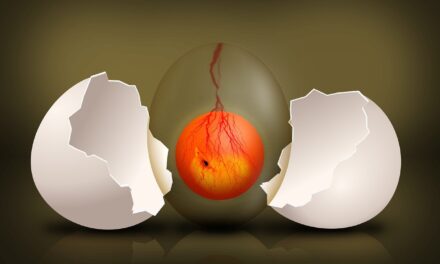Embarking on a weight loss journey after 50 can be a unique challenge for many women. At this stage in life, hormonal changes, a slowing metabolism, and lifestyle adjustments make traditional weight loss strategies less effective. However, it’s also a time when health becomes a priority, and understanding the right approach to weight loss is more important than ever. This article is dedicated to exploring effective, sustainable weight loss strategies specifically tailored for women over 50, emphasizing health and vitality alongside shedding pounds.
The goal of weight loss at this age isn’t merely cosmetic. It’s about enhancing quality of life, improving health, and reducing the risks associated with age-related diseases such as heart disease, diabetes, and osteoporosis. For many women, the post-menopausal years can bring about significant changes in how and where the body stores fat due to hormonal fluctuations. This can affect overall body composition and health outcomes.
In this guide, we’ll delve into understanding the body’s changes during this period and how to adapt weight loss strategies that work. We will explore how to balance hormones, make smart nutritional choices, and incorporate physical activities that yield results without straining the body. By addressing these elements, weight loss efforts after 50 can be successful and lead to a rejuvenated sense of health and well-being.
Join us as we uncover the most effective weight loss tips and strategies for women over 50, supported by the latest research and expert insights. Whether you are looking to revitalize your current health regimen or find new methods to manage your weight, this article aims to provide practical advice that resonates with your lifestyle needs and personal health goals.
Moving forward from the introduction, let’s explore the key factors and strategies for effective weight loss specifically designed for women over 50, incorporating current research and expert insights.
Detailed Strategies for Effective Weight Loss After 50
For women over 50, losing weight involves more than just cutting calories. It requires an understanding of the body’s changing needs and a comprehensive approach that addresses hormonal balance, nutritional needs, and appropriate physical activity.
1. Hormonal Balance and Its Impact on Weight
Menopause and the years following bring significant changes in hormone levels, particularly estrogen, which can affect body weight and distribution. Lower estrogen levels are associated with a higher percentage of body fat, particularly around the abdomen.
– Expert Insight: Specialists recommend managing hormonal imbalances through diet, lifestyle changes, and sometimes hormone replacement therapy (HRT), depending on individual health circumstances. Consulting with a healthcare provider can help determine the best approach for hormonal management to aid weight loss.
2. Nutritional Adjustments for Metabolic Support
As metabolism naturally slows with age, dietary adjustments are crucial. It’s important to focus on nutrient-dense foods that provide adequate vitamins and minerals without excess calories.
– Fiber-Rich Foods: Incorporate more fruits, vegetables, whole grains, and legumes to help maintain digestive health and satiety.
– Lean Proteins: Opt for sources like chicken, fish, tofu, and legumes to support muscle maintenance and recovery.
– Healthy Fats: Include sources like avocados, nuts, seeds, and olive oil, which are essential for hormone production and can help keep you full longer.
3. Physical Activity Tailored to Aging Bodies
Exercise remains a cornerstone of weight loss at any age, but the type and intensity may need to change after 50 to accommodate the body’s capabilities and to prevent injury.
– Strength Training: Essential for maintaining and building muscle mass, which naturally declines with age. Muscle tissue burns more calories than fat tissue, even at rest.
– Cardiovascular Exercises: Activities like walking, swimming, or cycling are effective and can be adjusted to your fitness level.
– Flexibility and Balance: Incorporate yoga or Pilates to improve flexibility, core strength, and balance, reducing the risk of falls.
4. Sleep and Stress Management
Poor sleep and high stress can lead to weight gain. Quality sleep and effective stress management strategies are integral to successful weight loss.
– Sleep Hygiene: Create a bedtime routine that promotes consistent, restful sleep. Avoid stimulants like caffeine and electronics before bedtime.
– Stress Reduction: Techniques such as meditation, deep breathing exercises, or engaging in hobbies can help manage stress.
Expert Insights on Sustaining Weight Loss Over 50
Sustaining weight loss over 50 requires ongoing adjustments and commitments. Experts suggest setting realistic goals and integrating changes gradually to ensure they can be maintained long-term.
– Regular Check-ups: Monitoring health metrics with a professional can help tailor strategies that address specific health needs.
– Community Support: Joining groups or clubs that focus on healthy living can provide motivation and accountability.
– Lifelong Learning: Stay informed about the latest health and nutrition research relevant to your age group to continually adapt your health strategies.
Summary and Takeaways: Embracing a Healthier Future
Weight loss for women over 50 can be challenging but immensely rewarding. It requires a holistic approach that includes understanding hormonal changes, making dietary adjustments, staying active, managing stress, and ensuring quality sleep.
– Holistic Approach: Combine diet, exercise, and lifestyle changes to address weight loss effectively.
– Be Patient and Persistent: Results might take longer to appear at this stage of life, but consistency is key.
– Consult Professionals: Work with healthcare providers to customize a plan that suits your specific needs and challenges.
By embracing these strategies, women over 50 can achieve sustainable weight loss, leading to improved health, increased energy, and enhanced quality of life.






